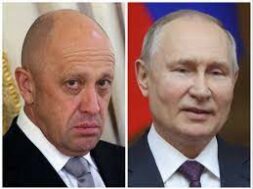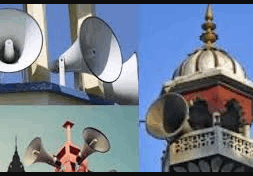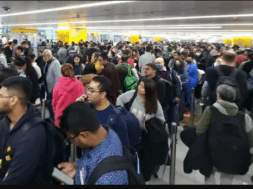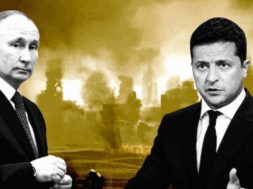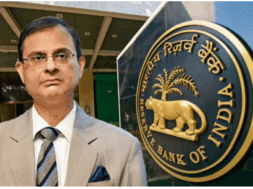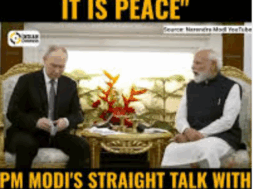
The “Fierce Russian Mutiny” Ends in Whimper, Rebels Withdraw to “Avoid Bloodshed”
Manas Dasgupta
NEW DELHI, June 25: In a sudden turn around, the heavily armed powerful mercenary group Wagner who advanced most of the way to Moscow and threatened to overthrow the Vladimir Putin regime, halted their approach ad announced their return to base camp de-escalating a major mutiny.
The Kremlin in return announced that the group would move to neighbouring Belarus and would not face any prosecution for rebellion. The withdrawal, the leader of the Wagner Group said was to avoid bloodshed in Moscow.
“A Wagner column left Rostov and headed to their field camps,” governor Vasily Golubev said on Telegram. On Saturday, the mercenaries had seized control of the southern Russian city of Rostov-on-Don, a key military base in the city.
Yevgeny Prigozhin a former Putin ally and founder of the private Wagner army said his men reached within 200 km of the capital on Saturday. Earlier, Moscow deployed soldiers in preparation for their arrival and told residents to stay indoors. Soon after, they began withdrawing from the Rostov military headquarters they had seized.
The feud between the Wagner chief and the Russian army came to a violent head on Saturday with his forces capturing a key army headquarters in southern Russia and then heading north to threaten the capital. The Wagner chief accused Russia’s military leadership of killing a “huge amount” of his mercenary forces in a strike on a camp and vowed to retaliate. Security forces have been scrambled across western Russia as regional governors urged residents to stay off the roads, and a “counterterrorist operation regime” was declared in Moscow.
Visuals released by the Wagner group on Telegram showed a huge crowd cheering as the Wagner forces left the town in their armoured vehicles and tanks. Dozens were cheering and chanting “Wagner! Wagner!” outside the military headquarters Wagner had captured. People even lined up to take pictures with the Wagner chief Prigozhin.
The events capped a day of escalating drama that saw Prigozhin take convoys of his fighters to within hours of the capital virtually unchallenged, even after President Vladimir Putin accused the mercenary group of “treason” in a TV broadcast to the nation.
The tide shifted suddenly in the evening when Prigozhin made the stunning announcement that his troops were “turning our columns around and going back to field camps” to avoid bloodshed in the Russian capital. Russian government said the chief of the reel Wagner mercenary force would go to Belarus and would not face charges after calling off his troops’ advance on Moscow easing the country’s most serious security crisis in decades.
Mikhail Kasyanov, Russia’s former prime minister under Putin (who was ultimately fired) spoke out against the Russian president in relation to the Wagner coup. A staunch critic of President Putin, Mikhail Kasyanov, said, “This is the beginning of the end… he’s in very big trouble right now.” Kasyanov further expressed his view that President Putin should not be forgiven for this and the Wagner coup has affected Putin’s political stability.
Media reports, however, said despite coming to a deal of exile from Russia with President Putin, there has been no news yet of Prigozhin arriving in Belarus.
Russia’s capture of Bakhmut, Ukraine, in May, had ended the longest battle of the war, marking a victory for Prigozhin, the founder of the Wagner paramilitary group. For Prigozhin, whose mercenaries led the assault on Bakhmut, capturing the eastern Ukrainian city appeared to be a personal obsession. One facet of the battle’s legacy will be the public feud it set off between him, the man once known as “Putin’s chef,” and the Russian defence ministry.
The situation around the headquarters of Russia’s Southern Military District in Rostov-on-Don was calm and street traffic resumed, media reports said on Sunday after Prigozhin and his mercenaries left the city. In a video on the agency’s Telegram messaging app, which it said was taken in the city of Rostov-on-Don, a man was seen sweeping a street and cars were moving along another street.
American intelligence officials briefed senior military and administration officials on Wednesday that Prigozhin, the leader of the mercenary Wagner Group, was preparing to take military action against senior Russian defence officials. The US spy agencies had indications days earlier that Prigozhin was planning something and worked to refine that material into a finished assessment.
For more than a year, US officials have quietly asked themselves a question they would not dare pose in public: Could Russia’s botched invasion of Ukraine eventually lead to the downfall of Russian President Vladimir Putin?
For a few chaotic, head-snapping hours this weekend, the notion did not seem so far-fetched. But even with the apparent end to the immediate threat posed by Prigozhin’s rebellious mercenary army, the short-lived uprising suggested that Putin’s hold on power is more tenuous than at any time since he took office more than two decades ago.
As Russia’s President Vladimir Putin faced “the armed mutiny” before the mercenary group turned back later in the day, following a deal brokered by Belarus — Prime Minister Narendra Modi was on Saturday briefed by senior officials on the developing situation in Russia, sources said.
Modi was briefed on the developments on his plane from Washington DC to Cairo by senior officials, including diplomats accompanying him, who are well-versed with Putin’s Russia and the situation there, sources said.
